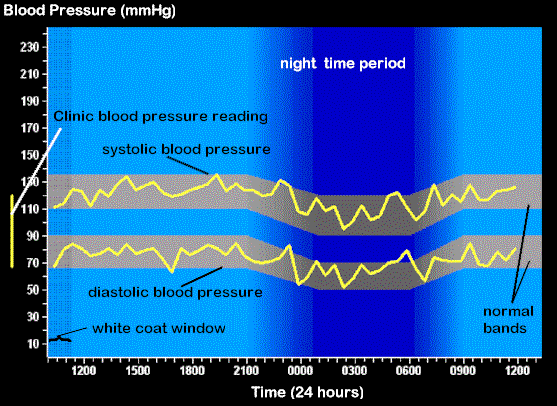![]()
|

Systolic blood pressure rises with age, and isolated systolic hypertension is particularly common in the elderly. Blood vessels become less elastic and less distensible with increasing age, as a result of changes in smooth muscle proliferation and alterations in elastin, collagen and calcium content. The structural and functional changes that occur with ageing are similar to those seen in hypertension itself. The combination of hypertension and ageing is manifest as a decrease in compliance. One consequence of this is the increase of systolic blood pressure found in elderly hypertensive individuals. A second consequence is that the decreased compliance may interfere with the accuracy of indirect sphygmomanometry.
As elderly patients are particularly at risk from the adverse effects of anti-hypertensive therapy, a clear case for treatment must be made in these individuals. ABPM will allow individuals with sustained systolic hypertension to be identified and treated appropriately.
|Back to Ambulatory blood pressure measurement| |Back to Elderly people|
[Home] [Introduction]
[Procedure] [Obtaining
a blood pressure profile] [Equipment]
[Blood pressure measurement in special circumstances]
[Conclusions] [Credits]

Each of the ABPM profiles in this package is laid out as follows:
� BHS 1999